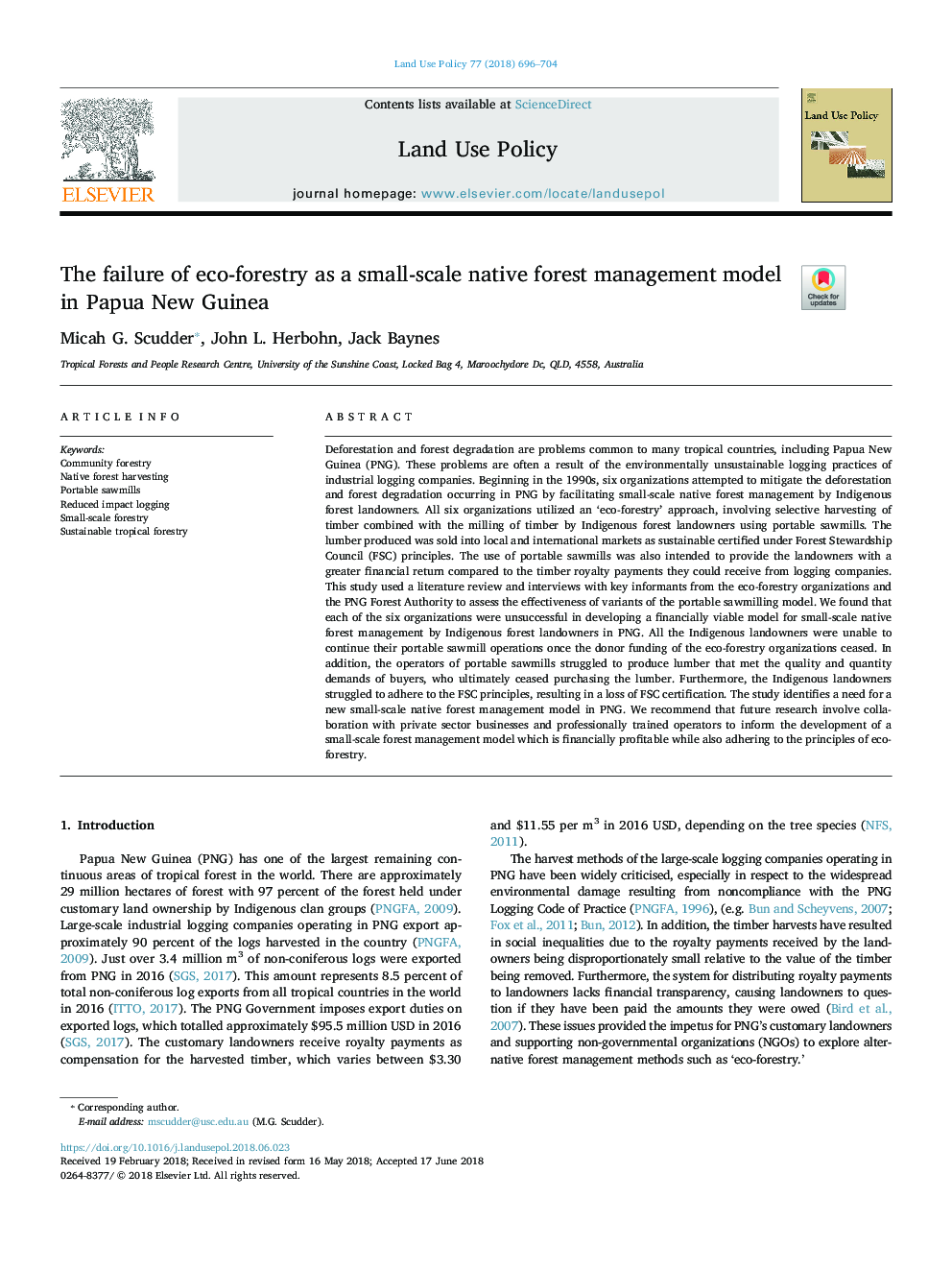| Article ID | Journal | Published Year | Pages | File Type |
|---|---|---|---|---|
| 6546201 | Land Use Policy | 2018 | 9 Pages |
Abstract
Deforestation and forest degradation are problems common to many tropical countries, including Papua New Guinea (PNG). These problems are often a result of the environmentally unsustainable logging practices of industrial logging companies. Beginning in the 1990s, six organizations attempted to mitigate the deforestation and forest degradation occurring in PNG by facilitating small-scale native forest management by Indigenous forest landowners. All six organizations utilized an 'eco-forestry' approach, involving selective harvesting of timber combined with the milling of timber by Indigenous forest landowners using portable sawmills. The lumber produced was sold into local and international markets as sustainable certified under Forest Stewardship Council (FSC) principles. The use of portable sawmills was also intended to provide the landowners with a greater financial return compared to the timber royalty payments they could receive from logging companies. This study used a literature review and interviews with key informants from the eco-forestry organizations and the PNG Forest Authority to assess the effectiveness of variants of the portable sawmilling model. We found that each of the six organizations were unsuccessful in developing a financially viable model for small-scale native forest management by Indigenous forest landowners in PNG. All the Indigenous landowners were unable to continue their portable sawmill operations once the donor funding of the eco-forestry organizations ceased. In addition, the operators of portable sawmills struggled to produce lumber that met the quality and quantity demands of buyers, who ultimately ceased purchasing the lumber. Furthermore, the Indigenous landowners struggled to adhere to the FSC principles, resulting in a loss of FSC certification. The study identifies a need for a new small-scale native forest management model in PNG. We recommend that future research involve collaboration with private sector businesses and professionally trained operators to inform the development of a small-scale forest management model which is financially profitable while also adhering to the principles of eco-forestry.
Related Topics
Life Sciences
Agricultural and Biological Sciences
Forestry
Authors
Micah G. Scudder, John L. Herbohn, Jack Baynes,
